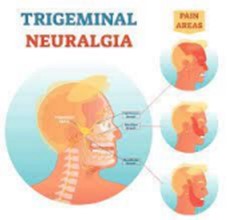A client diagnosed with severe Alzheimer's has been admitted to a long term care facility. Which of the following are appropriate activities for the nurse to include in the care plan?
Simple puzzles
Board games
Dangling ribbons or a mobile
Drawing with crayons
The Correct Answer is A
Choice A Rationale: Simple puzzles are appropriate activities for a client with severe Alzheimer's because they stimulate cognitive function and provide a sense of accomplishment.
Choice B Rationale: Board games are too complex and frustrating for a client with severe Alzheimer's, as they require memory, strategy, and social interaction.
Choice C Rationale: Dangling ribbons or a mobile are infantile and demeaning activities that do not respect the dignity and autonomy of the client.
Choice D Rationale: Drawing with crayons may be suitable for some clients with Alzheimer's, but it is not specific to the diagnosis and may not appeal to all clients.
Nursing Test Bank
Naxlex Comprehensive Predictor Exams
Related Questions
Correct Answer is C
Explanation
Choice A Rationale: Educating about the importance of proper food handling is important for preventing foodborne illnesses but is not specific to the care of a client with tetanus.
Choice B Rationale: Offering food at least 4 times a day may be necessary for maintaining nutritional support, but it does not address the specific care needs of a client with tetanus.
Choice C Rationale: Anticipating administration of opioids is an important component of the care plan for tetanus. Opioids can help manage muscle spasms and severe pain associated with tetanus.
Choice D Rationale: Providing distraction activities may be beneficial for clients with tetanus to help divert their attention from muscle spasms and discomfort, but it is not the primary intervention.
Correct Answer is D
Explanation
Choice A Rationale: Linking the pain to nasal stuffiness is not an accurate explanation of trigeminal neuralgia.
Choice B Rationale: Hypoglycemia is not typically related to trigeminal neuralgia.
Choice C Rationale: Releasing catecholamines with infection or stress is not the primary cause of trigeminal neuralgia.
Choice D Rationale: Pain is often due to stimulation of the affected nerve by pressure and temperature. This is a more accurate and relevant explanation for trigeminal neuralgia.

Whether you are a student looking to ace your exams or a practicing nurse seeking to enhance your expertise , our nursing education contents will empower you with the confidence and competence to make a difference in the lives of patients and become a respected leader in the healthcare field.
Visit Naxlex, invest in your future and unlock endless possibilities with our unparalleled nursing education contents today
Report Wrong Answer on the Current Question
Do you disagree with the answer? If yes, what is your expected answer? Explain.
Kindly be descriptive with the issue you are facing.
